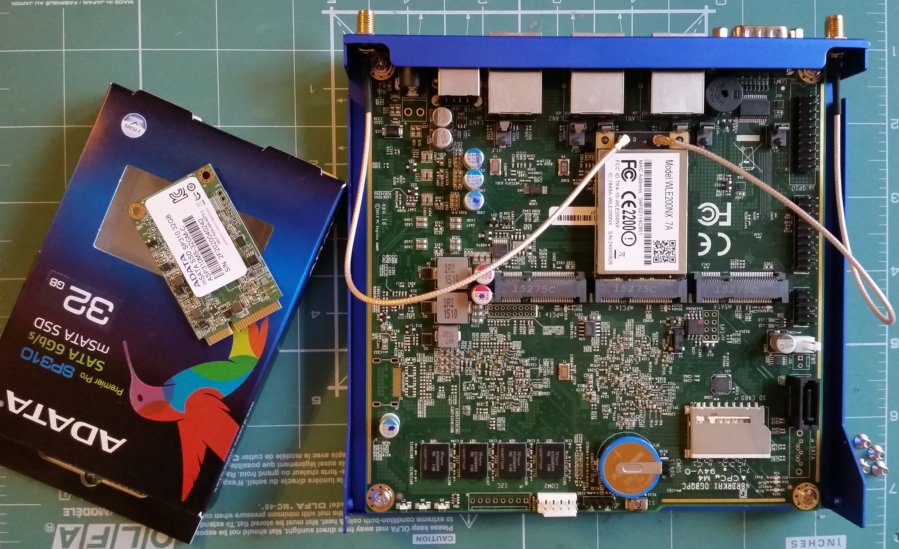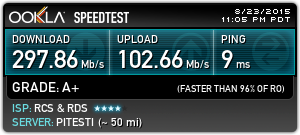pfSense home router using the PC Engines APU1D4

I ran for a while Tomato on a Cisco E3200 router but it wasn’t able to keep up with my home connection (300 down / 100 up). Even if the router has gigabit ports it was only able to nat at ~100-150Mbit and openvpn was limited to around 10Mbit
The decision came (due to what is available in my part of the world) to the Fitlet X or the PC Engines APU1D4.
The fitlet has 4 intel LAN ports and a quad core AMD 1GHz cpu (two generations newer than the APU). This was really apealing oposed the APU’s dual core bobcat and 3 realtek based NICs.
Eventually I settled with the APU due to the two internal mini-pcie slots and being only half the cost of the Fitlet. (Consider that you have to buy RAM for the fitlet-x and that you don’t have any internal mini-pcie left, the only one is used by the FACET card with the 3 LANs)
I won’t go into detail about the build or do a full review as this has already been made. I will only go trough the bits of information I had trouble finding before and after buying it.

- Throughput: without heavy use (squid, snort, etc.) you should see 400-500 Mbit WAN->LAN (limited by the realtek NICs). I know Mbit is not a good measure of a router/firewall performance but this is what matters to me at home. I saw mentions of 600 Mbit. I was eager to deploy it so I didn’t do any testing so all I can say is that 300Mbit works fine without any strain.
- OpenVPN: it does around 50Mbit for me using AES-CBC-128. This was really a tough one as I didn’t find any useful values before buying and it was important for me. It’s a bit disappointing but very usable. The Bobcat T40E doesn’t support AES-NI but as far as I found out from others it’s not really helping OpenVPN either. There is low hope that newer versions of OpenVPN will perform better. The Fitlet-X CPU should be 15% faster due to IPC gains on it’s newer core so you should see a bit more.
- **Temperature: **it appears that ~60 deg. C in idle is normal. Coming from Intel CPUs this worried me at first but seems normal for this CPU
- **Wireless: **if you go the pfSense route as I did get the Compex WLE200NX usually sold together with the APU. It’s atheros (best for pfSense) and what most pfSense developers using the APU have.
- SSD: don’t buy the 16GB crap SSD that is offered together with this board. Get a cheap ADATA/whatever instead. It’s probably going to be 32GB and at least twice as fast
- Case: important due to the solution PC Engines chose for cooling. Note that this case doesn’t offer space for a 2.5 SSD/HDD (even if one SATA port is onboard), additional USBs (even if headers are present) or for a second set of antennas (even if two mini-pcie devices can be installed)